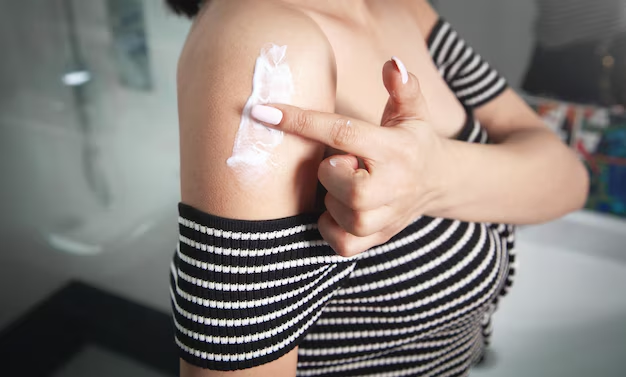Understanding Eczema: Searching for a Cure for Healthier Skin
For many, eczema is more than just a skin condition—it's a daily challenge marked by relentless itching, discomfort, and often, social anxiety. As you continue to search for answers to the question, "Can eczema be cured?" you're not alone. This comprehensive guide will delve into the nuances of eczema, potential treatments, lifestyle changes, and common misconceptions to provide a broader understanding of this condition.
What is Eczema?
Eczema, or atopic dermatitis, is a chronic inflammatory skin condition that leads to itchy, red, and swollen patches. While it's prevalent among children, eczema can persist into adulthood. The condition can appear anywhere on the body but commonly affects the hands, neck, inner elbows, knees, and face.
Key Characteristics:
- Dry, sensitive skin: This is often one of the first signs.
- Intense itching: Typically, the most distressing symptom.
- Red or brownish-gray patches: These are visible signs of inflammation.
- Thickened, scaly skin: Result of prolonged scratching.
Understanding these symptoms underscores the complex nature of eczema and the challenges in identifying a definitive cure.
The Search for a Cure: Current Perspectives
Is there a cure for eczema? This question has remained a topic of medical discussions and research for years. To date, while treatments exist to manage and alleviate symptoms, a permanent cure remains elusive.
Why is Eczema Hard to Cure?
Genetic Factors: Eczema has a significant genetic component, making it hard to cure. If one or both parents have eczema or other atopic diseases like asthma or hay fever, the likelihood of their children having eczema increases.
Environmental Triggers: Eczema is often triggered by various environmental factors such as pollen, mold, pet dander, and dust mites. These triggers can change and vary over time and location, complicating management.
Immune System Response: Eczema is believed to involve an overactive immune response to both internal and external stimuli, which is a challenge to curtail completely.
Treatment Approaches: Managing Eczema
While a cure has not been found, a variety of treatments can help manage eczema effectively and improve the quality of life for those affected.
Medical Treatments
Topical Corticosteroids: These anti-inflammatory medications help reduce itching and inflammation.
Calcineurin Inhibitors: Useful for reducing inflammation and flares.
Biologic Treatments: Options such as dupilumab target specific aspects of the immune system.
Antihistamines: These can help reduce itching, especially at night.
Phototherapy: Controlled ultraviolet light exposure can alleviate symptoms.
Natural Remedies
Some individuals turn to natural treatments to manage eczema symptoms. While these are not cures, they can provide relief for some.
Moisturization: Regular application of moisturizers can prevent dry skin.
Coconut Oil: Its anti-inflammatory properties can help ease skin irritation.
Aloe Vera: Known for its soothing effect, it can reduce itchiness and inflammation.
Oatmeal Baths: Colloidal oatmeal can relieve itching and skin irritation.
Lifestyle Adjustments
Dietary Changes: Identifying and avoiding food triggers can minimize eczema flare-ups. Consider keeping a food diary to track reactions.
Stress Management: Stress can exacerbate eczema. Techniques such as yoga, meditation, and deep breathing exercises can be beneficial.
Skin Care Routine: Use gentle, unscented products to avoid irritation.
Environment Control: Keep your living environment clean and free from potential allergens.
Common Myths and Misconceptions
Understanding what eczema is and isn't is crucial for managing expectations and treatments.
Myth 1: Eczema is Contagious
Eczema is not contagious. While the condition can appear quite severe, it cannot be spread from person to person through physical contact.
Myth 2: Eczema Only Affects Children
Though common in children, many adults also experience eczema. Some see symptoms diminish with age, while others continue to manage them throughout their lives.
Myth 3: Diet Alone Can Cure Eczema
While certain dietary changes may reduce symptoms, no evidence suggests that diet changes alone can cure eczema.
Research and Advancements
Scientific research continues in the hope of finding a definitive cure. Recent advancements include the development of new biologic treatments that offer targeted therapeutic options and ongoing genetic studies which may lead to breakthroughs.
Taking Control of Eczema
While a permanent cure for eczema is not currently available, understanding and managing the symptoms is well within reach. Partnering with a dermatologist to tailor a treatment plan can provide relief and empower those affected to lead a more comfortable life.
Practical Steps for Managing Eczema
- Identify Your Triggers: Keep a journal to track flare-up causes.
- Adopt a Skincare Routine: Consistent routine helps manage symptoms.
- Stay Informed: Keep abreast of new treatments and research.
- Seek Support: Join communities or support groups to share experiences.
Ultimately, the path to managing eczema is personal and ongoing, requiring persistence, patience, and regular adjustment to treatments and lifestyle choices.
🔍 Quick Summary for Managing Eczema:
- Understand Your Condition: Awareness of symptoms and triggers is crucial.
- Seek Medical Advice: Consult healthcare professionals for personalized treatment.
- Adopt Healthy Habits: Regular moisturization and stress management can significantly reduce flare-ups.
- Stay Updated: Research is ongoing and new treatments continue to emerge.
- Community Support: Connecting with others can provide both solace and practical advice.
🌿 Embrace this journey with informed choices and a positive outlook for healthier, happier skin.

